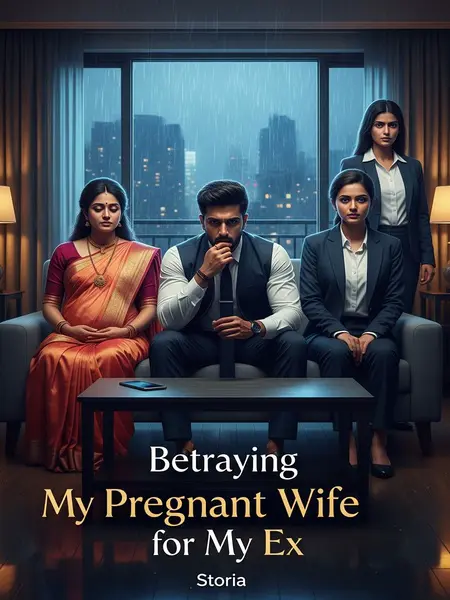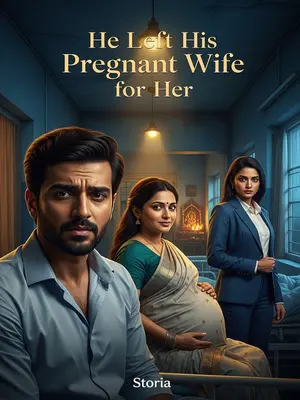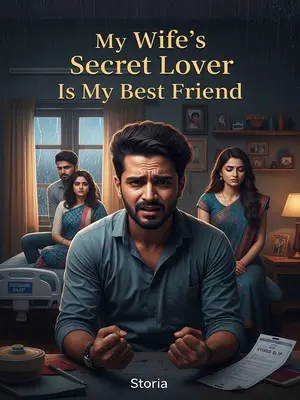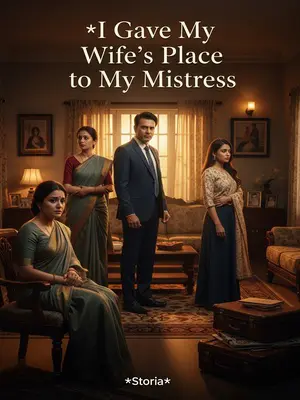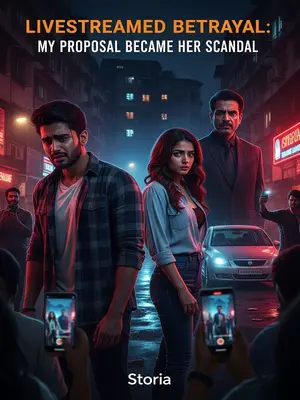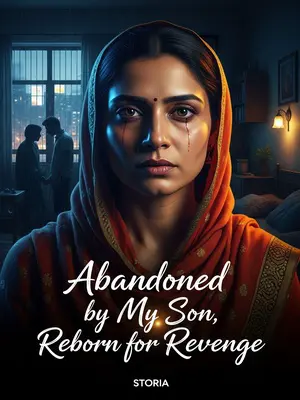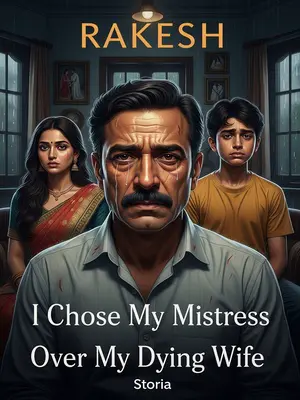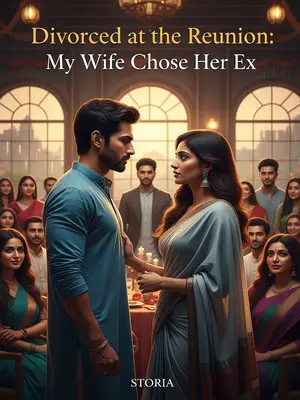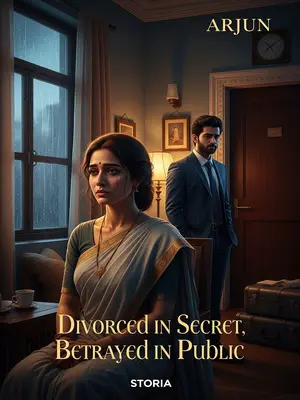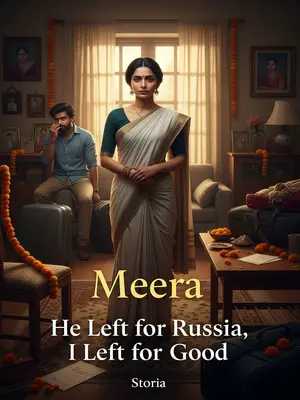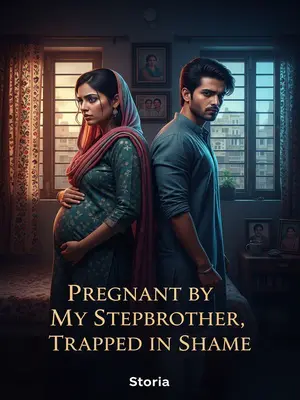Chapter 4: Outings and Old Wounds
Her weight shot up to sixty-five kilos.
She waddled more than walked, needing help to get out of bed. The mattress groaned every time she turned over at night. The doctor assured us it was normal, but I couldn’t help feeling awkward.
What I dreaded most was running into someone I knew whenever I took her out.
I made excuses to avoid malls and parks. 'Arrey, bahut garmi hai,' I’d say. If I couldn’t avoid it, I’d keep my head down, hoping not to run into old friends.
Every time we met an acquaintance, I wanted to crawl into a hole.
Once, we saw my college senior at the supermarket. He grinned and said, 'Wah, bhabhi toh double ho gayi hai.' I laughed along, but wanted to disappear inside.
But Meera was the opposite.
She wore her new shape like a badge of honour, chatting with everyone, showing off her baby bump, discussing baby names with random aunties. Sometimes I wondered how she could be so shamelessly cheerful.
The less I wanted to take her out, the more she insisted on outings.
She’d plan trips, dragging me to crowded places, saying, 'Accha, it’s good for the baby.' I’d grumble, but she never listened.
If it wasn’t today to buy a baby bathtub, it was tomorrow to buy diapers. There was always something.
The flat was filling up with baby things—some we didn’t even need. The delivery boys knew our address by heart. I joked with the security guard that soon, the baby would have more stuff than us.
What puzzled me was, she already knew in her third month that the baby was a girl.
The ultrasound report was framed on her bedside table. She’d caress her belly, talking to the baby about toys she’d buy. I didn’t understand her excitement.
For someone like her—a money-losing daughter—why did she care so much?
My mother always said, 'Beta, beti toh paraya dhan hai.' But Meera looked at our baby girl as if she was the best thing in the world. I just didn’t get it.
Her parents worked hard their whole lives, saved up all those flats, but because they raised a daughter, wouldn’t it all end up being mine?
I smirked at the thought, picturing myself as the king of those properties. But the more Meera fussed over every detail, the more restless I felt.
As the saying goes, when the clouds gather, there will be rain; when people act up, there will be trouble.
In our colony, people always said, 'Kuch toh gadbad hai.' And truly, trouble had been brewing in my mind, like the humidity before monsoon.
To some extent, my betrayal of Meera during her pregnancy was her own fault.
I justified every step away from her. What man could bear being ignored, only to be summoned for errands or complaints?
Back then, she was about five months pregnant. After buying almost everything, she remembered she still needed a stroller.
It was a Saturday. Meera woke me up early, phone filled with stroller screenshots. I tried to act sleepy, hoping she’d drop the idea, but no such luck.
I tried to persuade her to just buy one on Amazon India.
I made a list of pros and cons, but she rolled her eyes. 'Arrey, this is not a mobile phone. Baby's safety, baba!'
But she refused, insisting it was about the baby’s safety—she had to see it in person, and it had to be the best.
Her voice grew louder, her mother joining in. I had no choice. 'Fine, chalo.' My pride wounded, I gave in.
She was pampered since childhood and had a bad temper. As for me, I was more or less a ghar jamai.
Her parents always got their way. Even the watchman joked, 'Saab, aap toh humare damaad ho gaye.' Sometimes I felt like a guest in my own life.
So, though fed up inside, I dared not argue, only gritted my teeth and went along.
I put on my best husband face, but inside, I was seething. I thought about the match I’d miss that evening and cursed my luck.
As luck would have it, in a high-end stroller shop in Mumbai, I ran into Ritika.
Fate really knows how to twist the knife. I was fiddling with display models when I saw her out of the corner of my eye—hair tied up, but unmistakable. My heart raced, memories flooding back.
At first, I thought I was mistaken.
She looked thinner, more serious, but the tilt of her chin was the same. I almost called out, but stopped myself, not wanting to make a scene.
Because after Ritika dumped me, she married a rich guy from Bangalore two months later.
That wound never healed. Everyone in our St. Xavier’s college WhatsApp group knew about her big South Indian wedding. I remembered seeing the photos—her arms covered in gold, smiling for the camera.
According to her best friend, that guy was loaded, and Ritika instantly became a rich lady.
There were rumours she had servants and lived in a posh bungalow. I’d check her Instagram, seeing the trips, the fancy food, feeling envy and longing.
But the Ritika standing in front of me had come back to Mumbai and was working as a sales clerk.
She wore the shop’s blue kurta uniform, a faded nametag pinned to her chest. Her face looked tired, a far cry from the glamorous girl I remembered. I felt a small, mean sense of satisfaction.
This was nothing like the image I had of her.
My mind reeled. What could have happened? Was her marriage over? Did she need money? I imagined all sorts of stories, each one making me feel stronger, more in control.
Ritika enthusiastically served Meera the whole time, not noticing me.
She explained features, compared brands, even tested out stroller brakes. Meera chatted away, oblivious to the tension. I kept my head down, afraid Ritika would recognise me.
She finally recognised me at the checkout counter.
Her hand froze, eyes widening. For a moment, time seemed to stop. I felt exposed, like in a reality show confrontation.
Before, whenever Meera bought something, I never paid.
I’d let her handle the money, standing aside, pretending to check my phone. It became a habit, one that made me feel small.
But this time, before Meera could scan the UPI code, I rushed forward, slapped my debit card on the counter, and said coolly, 'I’ll pay.'
It was childish, but I wanted Ritika to know I was doing well. The look on her face made it worth it. I straightened my shoulders, but my voice cracked slightly when I tried to sound confident.
Ritika finally noticed me.
Her eyes darted between Meera and me, recognition slowly dawning. Her lips parted, but she quickly composed herself, handing me the bill without a word. I could sense her shock.
I could see a look of shock flash across her face. Even her hand trembled as she picked up my card.
She almost dropped the machine, fumbling to process the payment. I tried to keep my face neutral, but inside, I was gloating. Finally, the tables had turned.
I pretended not to recognise her.
I avoided eye contact, making small talk with Meera about the weather. It felt like a movie scene—awkward, but thrilling.
After taking the bill, I glanced at it, then looked up at Meera and complained, 'Didn’t you say you wanted the best and most expensive for the baby? Why pick one that’s only twenty thousand?'
Meera looked confused, almost offended, glancing at the stroller as if it had become less valuable.
'Is such a cheap stroller any good?'
I said it loudly, sneaking a glance at Ritika for her reaction. My annoyance showed in my voice, and a couple of other customers looked over.
Meera was stunned by my question.
She opened her mouth to reply, but no words came out. I could tell she was trying to figure out if I was joking or serious.
She probably never expected that I, who always suggested buying cheap stuff, would suddenly be so generous.
Her mind seemed to race, trying to make sense of my behaviour.
At this moment, another clerk hurriedly explained, 'Sir, this is already the most expensive stroller in our store. Don’t worry, the quality and comfort are absolutely guaranteed.'
Her voice was polite, a little nervous. Maybe she sensed the tension, or maybe she just wanted to close the sale quickly.
I was quite pleased to be addressed as 'sir.'
It felt good to be treated with respect, especially in front of Ritika. For a moment, I forgot all about my irritation with Meera.
But I still put on a rebellious expression, shaking my head and sighing. 'Sigh, what kind of lousy shop did you pick? The most expensive stroller is only twenty thousand. Unbelievable.'
Meera just looked at me, bewildered, but said nothing.
I waved my hand, 'Forget it, let’s just go with this. If the baby isn’t comfortable, we’ll just buy another one.'
I acted as if money was no object, glancing at Ritika for her reaction, enjoying her shock. I wanted her to see I wasn’t the same desperate boy she left behind.
So, under the surprised gazes of Ritika and Meera, I took out my car keys and pressed the unlock button.
The metallic beep of my Honda City echoed from the door. The security guard at the entrance nodded respectfully, while a street dog dozed in the shade beside the tyre. I jingled my keys, feeling a small victory.
I swaggered out of the shop, not looking back. I could feel Ritika’s eyes on me. For a second, I imagined her regretting every decision she’d made after leaving me.
Inside, my heart was racing. I hadn’t felt this alive in years.
But I knew Ritika wouldn’t be able to resist reaching out. I was already waiting for her WhatsApp friend request.
